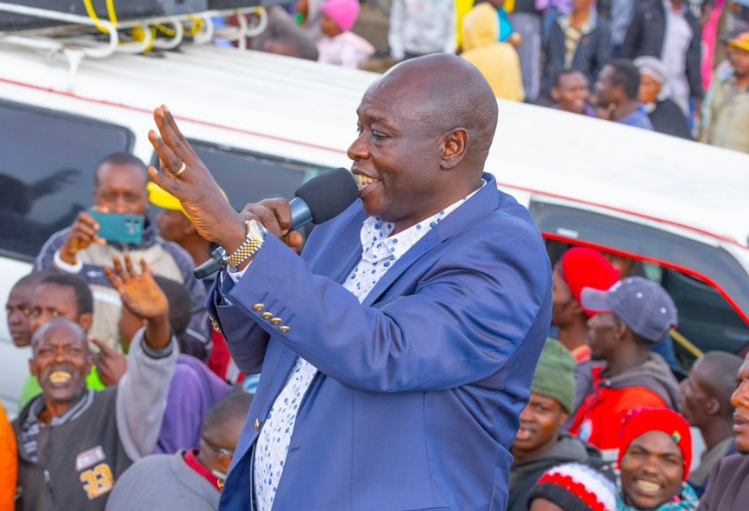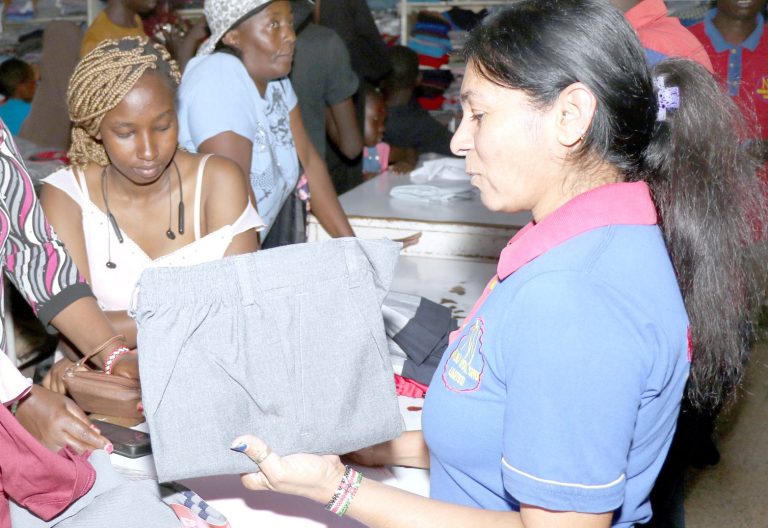Riggy G’s lamentations may herald new start

It has been hardly six months since Rigathi Gachagua was impeached. Since then, the man from Nyeri has not stopped talking. This is not to say that the former Deputy President never used to talk, only that now he is talking about new subjects.
Riggy G, as he is now popularly known, has been speaking of the sins President William Ruto has visited on him and the country. He has said things that a newspaper must verify before publishing, fearing that if it publishes them at face value, it will break the law.
Some of those things have been in the public domain, but others are repeats of what the President may have said about him, which the former Deputy President is amplifying now.
The two feuding national leaders are letting the public into high-level games in the palace. For example, was the man from Nyeri ever offered money to retire from office and if so, how much?
Did Riggy G demand a certain amount of money to popularise government programmes in his region? We may never know the truth, but at least the little we are being let in on is juicy enough.
For a long time, fertiliser was a story that drew the public’s sympathy. The government, it was said, let fake fertiliser into the system, and the farmers were disappointed.
But now, thanks to the feuding, the former official has revealed that the government sold fertiliser that was donated to it. Of course, the government has an explanation, but the former official’s explanation is much more captivating.
The government received the fertiliser donation and gave it out to friends of the government, who packaged the gift from Europe and sold it to the poor public, and somehow, the money ended up in private pockets.
Without intending to, the beauty of what is going on in the country is that it is stretching our practices. The former Deputy President is testing the freedom of speech and the rights of access to information. Much of what he is saying would remain classified information.
Take, for example, what is happening to the play by Butere Girls High School that has now attracted public attention. Butere Girls may be a famous school in Western Kenya, but drama festivals are routine events that do not attract attention.
The government’s response to the play has been overbearing, drawing in many players, some of whom tend to mind their business in the shadows. The critical issue at play is the freedom of speech and of the creative arts. Why are the poor girls not allowed to do their thing in silence? The State’s involvement will focus attention on the government.
The amount of information coming to the public is unprecedented. But maybe all this is for the nation’s good – an opportunity to peek into the shenanigans of the high and the mighty, explaining why the country has always been in a sorry state.
Now, it is for journalism to take over. Through investigative reporting, it would be great for further work to be put into these revelations to reveal our actual state of affairs. What we have from the former officials are mere statements – granted that they have not been refuted.
Those in the know, the chattering middle class, never stop to remind us that Kenya was at par with Singapore, Malaysia and other Southeast Asia countries at some point. We have a peek into the behaviour that has made the difference and why Asia left us behind. What is lacking is the rage demanding that we do better and start our journey afresh, given that our past has failed us.
Economists remind us that not too long ago, we were doing way better than Vietnam. But look now: In just about a decade, Vietnam has emerged from the ruins of war and is posting four times the size of Kenya’s economy while we continue lamenting being left behind by Singapore. Maybe Riggy G’s lamentations could form a foundation for the country’s future if they are corrected and a new course is taken.
— The writer is the Dean of Daystar University’s School of Communication














